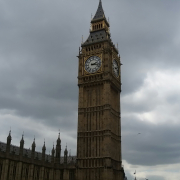15 years of government policy failure – can Shirley Cooper change that?
Congratulations to Shirley Cooper, CIPS Past President, who has become the UK government’s “Crown Representative for small businesses”. In that role, she will represent the interests of smaller firms, particularly in terms of their ability to win government contracts. “She will work with the Cabinet Office’s Small Business Advisory Panel, departments, suppliers and trade bodies to further level the playing field for small businesses, start-ups and social enterprises and ensure they can compete for and win more government contracts” says the announcement.
The government’s policy goal to increase the amount of spend going to SMEs is a long-running failure. I worked with Sally Collier of OGC on the implementation of the first review of small business and government procurement, the Glover review, way back in 2009. We recommended that there should not be a target or targets set for spend with SMEs – we felt targets would distract and take resources away from actually doing real stuff that would help SMEs. But the new coalition government disagreed, so a target of 25% was set, with no real logic behind it.
It wasn’t hit in the first few years, but ridiculously, the Tories said they would increase the target to 33% in the 2015 election manifesto, purely to say something that sounded good to appeal to the small business lobby. Everyone in public procurement knew it was a ridiculous move. But surprisingly, the Tories won the election and the target was increased. Even the Public Accounts Committee in 2016 concluded “it is not clear how the Government decided on 33% as a target or how achievable it is”.
The answer to the achievability question is that the target is impossible to hit because a few organisations dominate the overall spend figures – particularly MOD and National Highways (previously the Highway Agency). Because SMEs can’t build aircraft carriers or the M25, even if every other department does really well, the target won’t be achieved because of those big spenders.
So the government decided that the target should include second tier spend, the money big suppliers spend with smaller suppliers of their own. Of course, if you are going to add this in, then following the logic, really you should subtract the money SME first tier suppliers spend themselves with big suppliers! Anyway, many of the large suppliers to government don’t really track their own spend with SMEs. I suspect when government asks its first tier suppliers for the data, many of them just make up the numbers.
So in 2021/22, the total spend with SMEs went down from 26.9% to 26.5%, including that indirect second tier spend. Direct spend went down more dramatically from 14.2% to 12.3%. But what happened in 2022/23, you say? We don’t know yet. The data tend to come out around 18 months after the end of the period in question, either because it is so difficult to put together or because if you publish it really late, it takes some of the potential political heat out of the report. Maybe both.
The decline may be due in part to another trend that has been reported by the National Audit Office. More spend is not competed these days, with more use of frameworks, direct awards and single supplier contracting. Whilst SMEs are on many frameworks, that mechanism makes it easy for buyers to just choose their favourite (usually large) firm.
There is talk about how the new Procurement Act will help SMEs, and to be fair, there are a couple of positive factors there. “The Act places a requirement on contracting authorities to assess the particular barriers facing SMEs throughout the entire procurement lifecycle, and to consider what can be done to overcome them”, for instance.
Tougher “rules” on prime contractors paying sub-contractors could also help if policed. A single registration system for potential suppliers is a good move for everyone (Sally and I suggested that in 2009). But the idea that the greater flexibility for buyers and contracting authorities will suddenly lead to a boom for SMEs is just wishful thinking in my opinion.
There are also a whole range of arguments around whether supporting SMEs is a sensible policy goal at all. Might it be better to support diverse, minority owned business? Or social enterprises? Or innovative start-ups? Or firms based in deprived areas? Is simply looking at size a sensible way of targeting assistance?
So really, the role of the SME Crown Rep has historically been as a figurehead to show the government “cares” about SMEs, and get some votes from small firm owners. In fact, big firms have continued to rule the roost in terms of actually winning contracts. Maybe Cooper can change that – we’ll see, but I wish her luck and hope she can have an impact. It woudl also be interesting to know how she plans to measure her effectiveness.









Leave a Reply
Want to join the discussion?Feel free to contribute!